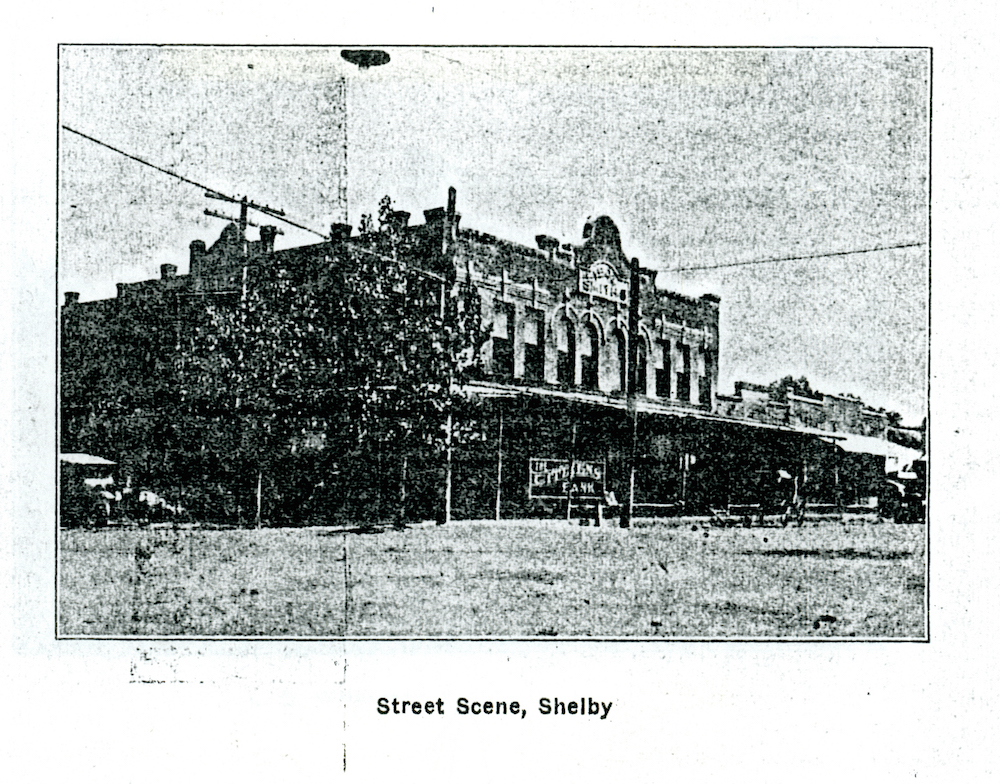This past week, I spoke to the Bolivar County Historical Society in Cleveland at the Capps Archives building on the campus of Delta State. My talk concerned the history of my hometown of Shelby.
My family is one of the early families to settle in Shelby. Therefore, I thought I knew everything there is to know about the history of our town – until I started the research for my talk and discovered through friend, Lee Burke that long before Shelby was settled, it was once located on the ever-changing Mississippi River. That discovery lit up the Shelby Facebook page after I posted it. And, it also fueled my desire to look further into our history.
The Mississippi River played a role in bringing people here to settle in Bolivar County. However, by the time Shelby was established, the river had changed course and was located 12 miles west of town. Long before the Corps of Engineers existed and the levees were in place, the Mississippi River ran wild, meandering all over the Delta.
Shelby was settled in 1852, when Col. M.D. Shelby from Claiborne County came up the Mississippi River with his slaves and landed at Concordia, one of the Delta’s first river towns which was located about two miles above Gunnison. If you drive to Donaldson Point Hunting Club, you’ll pass right over the land where Concorida was located. The Concordia Cemetery still survives, but nothing else.
The 12-mile stretch of land between Concordia and Shelby Col. Shelby encountered was as thick as any jungle on earth according historical accounts. Col. Shelby and his men had to cut their way through the dense forest finally arriving on the high-ground that would become the town of Shelby.
Once there, the land was cleared and houses, farms, and buildings were built. My great-grandfather, J.W. Thomas arrived in Shelby in 1880 from Ford, Virginia. Our family lived there for five generations and 120 years until I moved us to Cleveland in 2000.
In 1884, the railroad between Memphis and Vicksburg was completed and trains began passing through downtown Shelby. Because of this, the town began to grow reaching it’s economic peak between 1940 and 1960.
But, in it’s day, like so many other small Delta towns, Shelby was full of glory.
In the book, A Street In a Town Remembered, written by one of Shelby’s former residents, Carol Tucker, she writes, “…..Shelby was as cosmopolitan as Bleaker Street in New York City with some of its early citizens being descended from members of early colonial families such as the Henrys — descendants of Patrick Henry; Ellen Palmer Thomas, a close cousin of Jefferson Davis; the Poitevents, Huguenots who had arrived in Charleston in 1685; the Shelby family – some who were descendants of Cardinal Hughes, founder of St. Patrick’s Cathedral in New York; the Wilsons, descendants of a signatory of the Declaration of Independence…” Early Shelby natives also included graduates from Princeton and Yale.
There is no end to the Mississippi Delta’s vast history. And, Shelby is just one of many Delta towns with a rich story.
 Scott Coopwood, a seventh generation Deltan, lives in Cleveland, Mississippi, with his wife Cindy and their three children. Scott is the publisher and owner of Delta Magazine, one of the South’s leading lifestyle publications, the Delta Business Journal, the first business publication in the Mississippi Delta; and Cleveland’s weekly newspaper, The Cleveland Current. Scott’s company also publishes two weekly e-newsletters. Coopwood publishing concerns now reach 250,000 people. Scott is also a 1984 graduate of the University of Mississippi. He can be reached at scott@coopwood.net
Scott Coopwood, a seventh generation Deltan, lives in Cleveland, Mississippi, with his wife Cindy and their three children. Scott is the publisher and owner of Delta Magazine, one of the South’s leading lifestyle publications, the Delta Business Journal, the first business publication in the Mississippi Delta; and Cleveland’s weekly newspaper, The Cleveland Current. Scott’s company also publishes two weekly e-newsletters. Coopwood publishing concerns now reach 250,000 people. Scott is also a 1984 graduate of the University of Mississippi. He can be reached at scott@coopwood.net


